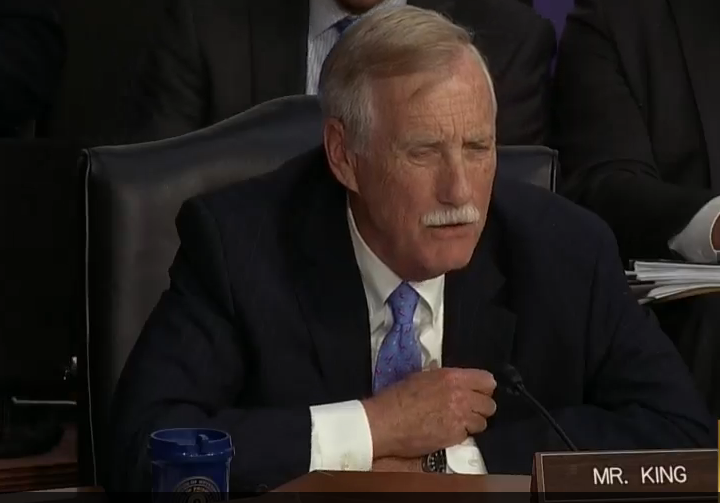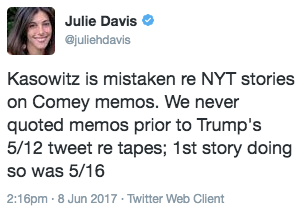The Jared Firing Line
After long-standing reports that Steven Bannon will go to war against the “globalists” who remain in the White House, the WSJ has a report sourced to “people familiar with the matter” that there was a plan to oust Jared Kusher in June.
Some of President Donald Trump’s lawyers earlier this summer concluded that Jared Kushner should step down as senior White House adviser because of possible legal complications related to a probe of Russia’s involvement in the 2016 presidential election
[snip]
After some members of the legal team aired their concerns to Mr. Trump in June, including in at least one meeting in the White House, press aides to the legal team began to prepare for the possibility that Mr. Kushner would step down, drafting a statement explaining his departure, said people familiar with the matter.
Mr. Trump wasn’t persuaded that Mr. Kushner needed to leave. One person said Mr. Trump’s view was that Mr. Kushner hadn’t done anything wrong and that there was no need for him to step down.
The story includes a non-denial denial from Marc Kasowitz, who left with legal spox, Mark Corallo in July.
Mr. Kasowitz in a statement said: “I never discussed with other lawyers for the President that Jared Kushner should step down from his position at the White House, I never recommended to the President that Mr. Kushner should step down from that position and I am not aware that any other lawyers for the President made any such recommendation either.”
Kasowitz’ formulation “lawyers for the President” does not exclude “White House lawyers” at all.
Plus, if White House counsel who are not Trump’s personal lawyers recommended the President oust Kushner, it might explain one of the (many) reasons Robert Mueller might want to talk with Don McGahn and his deputy James Burnham.
Mueller has notified the White House he will probably seek to question White House counsel Don McGahn and one of his deputies, James Burnham. Mueller’s office has also told the White House that investigators may want to interview Josh Raffel, a White House spokesman who works closely with Trump son-in-law Jared Kushner.
And if, as WSJ reported, a statement explaining Kushner’s departure got drafted, then Raffel would be part of that.
But if I’m right, then I suspect the reasons for ousting Kushner go further than the ones described by the WSJ (which include his failure to identify the Russians he spoke with, his meetings with Russians (including the June 9 meeting at Trump Tower), and the possibility his continued presence in the White House would expose others employees and Trump to risk.
After all, just yesterday, in an interview where he was grilled about a divide between him and other Administration officials — including Ivanka and Jared — Steve Bannon went on 60 Minutes, coyly confirming that he’s furious about the Jim Comey firing, while pretending he hasn’t been leaking just that for weeks.
Jared was a key advisor in the decision to fire Comey.
At the Oval Office meeting on Monday, May 8, Trump described his draft termination letter to top aides who wandered in and out of the room, including then-Chief of Staff Reince Priebus, White House Counsel Donald McGahn and senior adviser Hope Hicks. Pence arrived late, after the meeting had begun. They were also joined by Miller and Trump’s son-in-law, Jared Kushner, both of whom had been with Trump over the weekend in Bedminster. Kushner supported the president’s decision.
Had he been ousted in July, the White House could have blamed it all on him, and let him take the fall (and Trump could even have pardoned him for his other Russian sins). But Trump decided his son-in-law had done nothing wrong, with the firing advice, or with all the meetings that Trump also didn’t fault Mike Flynn for, so Trump ignored the advice of a number of his lawyers.
Update: Ty Cobb all but names Bannon to the WaPo.
In a statement Monday night, White House lawyer Ty Cobb blamed the disclosure of the internal debate on former White House staffers seeking to tarnish Kushner, who Cobb described as “among the President’s most trusted, competent, selfless and intelligent advisers.”
“Those whose agendas were and remain focused on sabotaging him and his family for misguided personal reasons are no longer around,” said Cobb, who was brought aboard in July to specialize in the Russia inquiry. “All clandestine efforts to undermine him never gained traction.”




